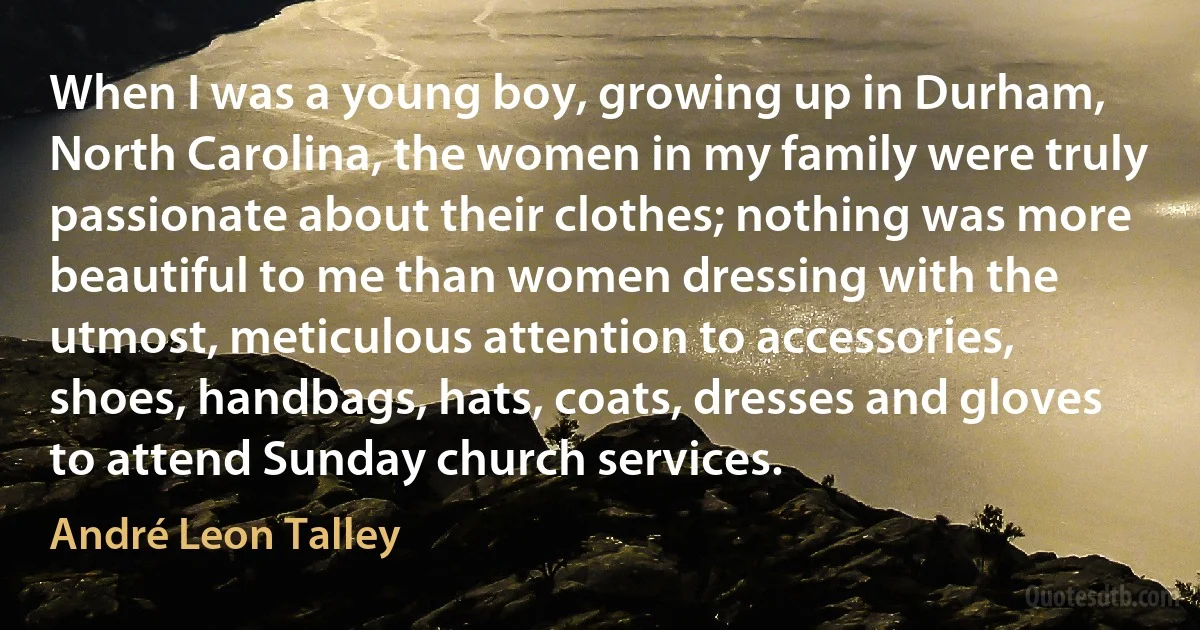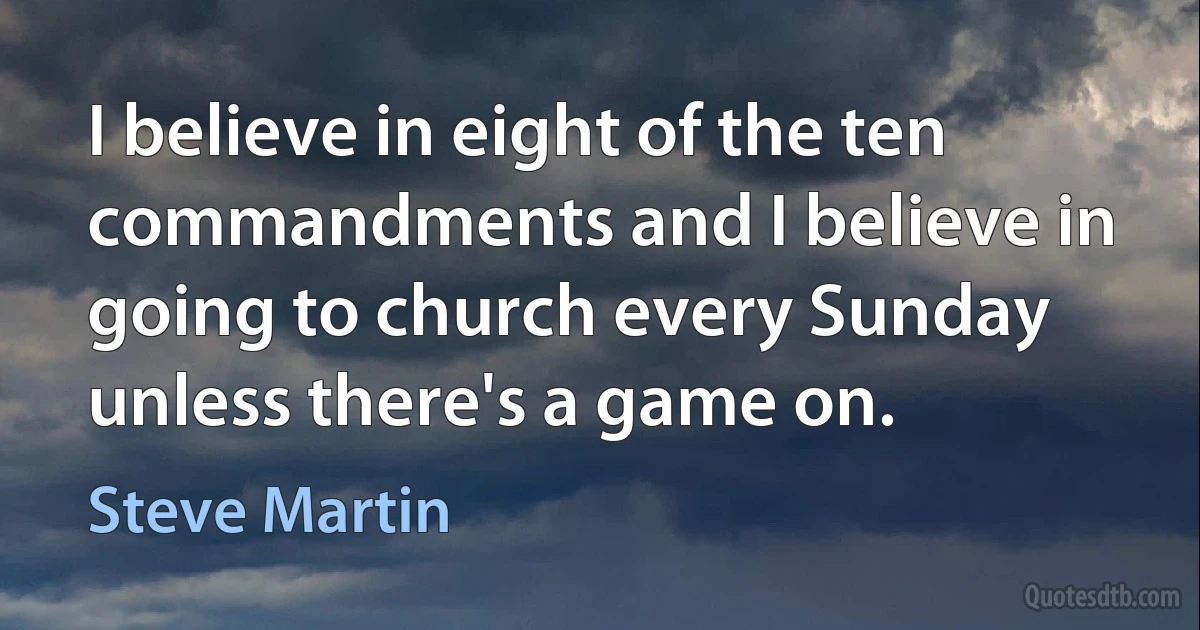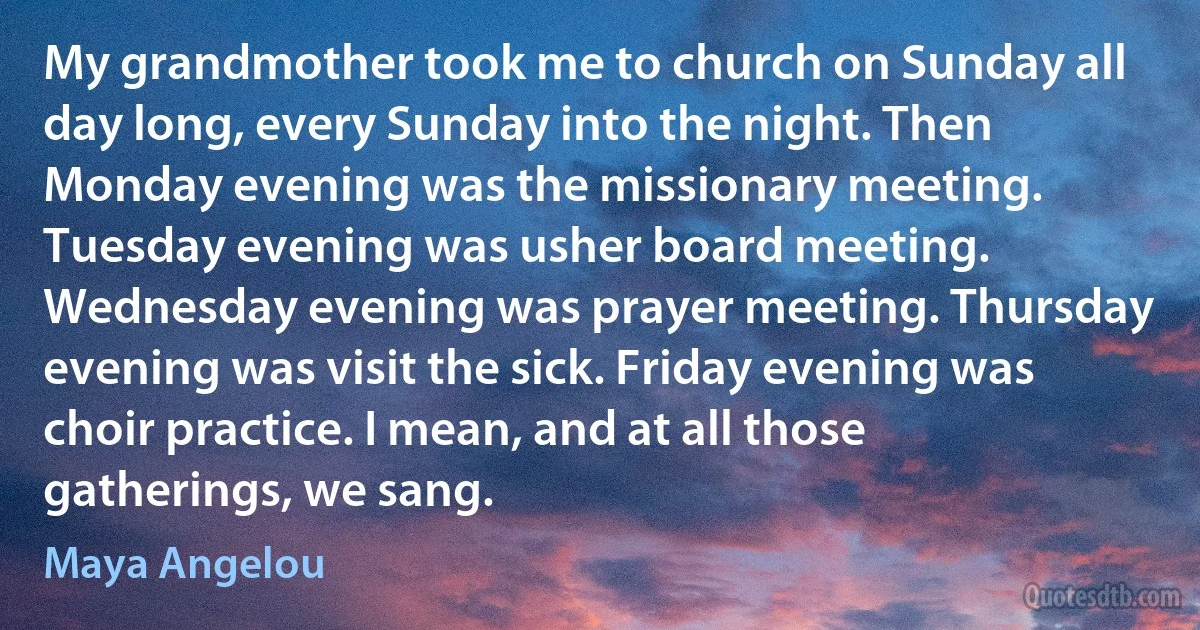Sunday Quotes - page 15
I associated much of Christian doctrine with children's stories because I grew up in church. My Sunday school teachers had turned Bible narrative into children's fables. They talked about Noah and the ark because the story had animals in it. They failed to mention that this was when God massacred all of humanity.

Don Miller (author)
The first documentary I saw as a child was Robert Flaherty's Nanook of the North (1922) broadcast one Sunday afternoon. Nanook enchanted me by his courage to smile in a frozen wasteland, and by the simple fact that he wore a fur coat rather than a military uniform: this gentle hunter wasn't a conqueror. Later, I understood how great Flaherty was: he told a timeless story without using commentary or pedagogues, and he didn't interview Nanook like a celebrity or an aggressive talk-show host. He remained off-screen, observing and listening to create that exceptional complicity we feel in this documentary that eschews didacticism. The emotion of life found its counterpart in the emotion of art - a rare and precious achievement in a genre that is often limited to the emotion of the informational narrative.

Damian Pettigrew
My 'morals' were sound, even a bit puritanic, but when a hidebound old deacon inveighed against dancing I rebelled. By the time of graduation I was still a 'believer' in orthodox religion, but had strong questions which were encouraged at Harvard. In Germany I became a freethinker and when I came to teach at an orthodox Methodist Negro school I was soon regarded with suspicion, especially when I refused to lead the students in public prayer. When I became head of a department at Atlanta, the engagement was held up because again I balked at leading in prayer. I refused to teach Sunday school. When Archdeacon Henry Phillips, my last rector, died, I flatly refused again to join any church or sign any church creed. From my 30th year on I have increasingly regarded the church as an institution which defended such evils as slavery, color caste, exploitation of labor and war..

W. E. B. Du Bois
This Sunday School has been of help to me, greater perhaps than any other force in my Christian life, and I can ask no better things for you than that you, and all that shall come after you in this great band of workers for Christ, shall receive the same measure of blessedness which I have been permitted to have.

John D. Rockefeller
On the whole, I do not find Christians, outside the catacombs, sufficiently sensible of the conditions. Does anyone have the foggiest idea what sort of power we so blithely invoke? Or, as I suspect, does no one believe a word of it? The churches are children playing on the floor with their chemistry sets, mixing up a batch of TNT to kill a Sunday morning. It is madness to wear ladies' straw hats and velvet hats to church; we should all be wearing crash helmets. Ushers should issue life preservers and signal flares; they should lash us to our pews. For the sleeping god may wake some day and take offense, or the waking god may draw us out to where we can never return.

Annie Dillard
Look, I think there is a gay and secular fascism in this country that wants to impose its will on the rest of us, is prepared to use violence, to use harassment. I think it is prepared to use the government if it can get control of it. I think that it is a very dangerous threat to anybody who believes in traditional religion. And I think if you believe in historic Christianity, you have to confront the fact. And, frank- for that matter, if you believe in the historic version of Islam or the historic version of Judaism, you have to confront the reality that these secular extremists are determined to impose on you acceptance of a series of values that are antithetical, they're the opposite, of what you're taught in Sunday school.

Newt Gingrich
You know, it's ironic to me that Christians want to keep the Ten Commandments in our schools, because Christianity has abrogated four of the Ten Commandments. For example, the Sabbath day according to the Ten Commandments is Saturday, not Sunday. And the reason is because God rested, not because Jesus was resurrected.

Alan Dershowitz
O what a blessing is Sunday, interposed between the waves of worldly business like the divine path of the Israelites through the sea! There is nothing in which I would advise you to be more strictly conscientious than in keeping the Sabbath day holy. I can truly declare that to me the Sabbath has been invaluable.

William Wilberforce
Nor was my attendance at the Polo Grounds limited to baseball games. I sat in the lower left field stands to watch the championship professional football game between the undefeated Chicago Bears led by Bronc Nagurski and the New York Giants. Because the field was so icy slick-the temperature dipped to four degrees above zero that Sunday afternoon-the Giants' owner Wellington Mara had a minion at halftime break into Manhattan College's gymnasium and steal the school's basketball sneakers. Clad in sneakers and suddenly able to keep from sliding all over the joint, the Giants turned a 13-3 deficit into a 30-13 victory. All this despite an advisory to his teammates from a former Chicago linebacker named George Halas, "Step on their toes! Step on their toes!"

Arnold Hano
On the last Sunday in September in smoggy Los Angeles, announcer Vin Scully riffed through some notes as Willie McCovey came to bat for the last time that season before the Chavez Ravine folks. "Let's see," said Scully, "no home runs since September 11. . . .Well, it's been a long season. McCovey's got to be tired. Big as he is, he's probably worn out." So Scully was looking down at his papers when he heard the familiar crack. Worn-out Willie had just driven the ball over the right field fence, over the bullpen, and into Glendale. Scully did not see the pitch McCovey hit. It had been a palm ball lobbed up by Pete Mikkelson, the kind of pitch that floats up like a dead flounder, and usually goes about as far as dead flounders fly when you hit one. If you hit one. This one traveled a couple of miles or more, and Willie McCovey had home run number 45, to break his tie with Hank Aaron and win for McCovey his second consecutive National League home-run title.

Arnold Hano



